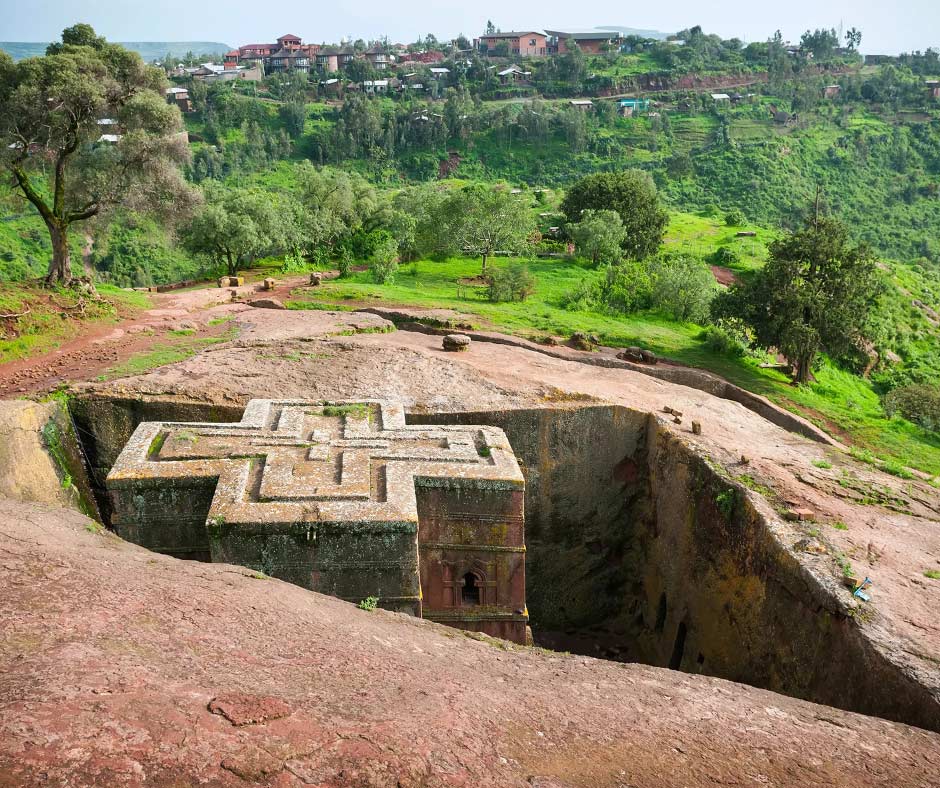On a quiet rise just outside Namugongo, the early morning mist clings to the earth as thousands of barefoot pilgrims sing their way toward the Uganda Martyrs Shrine. It’s a June tradition, but lately, it has begun to feel like something more. Something larger. More purposeful.
Across Africa, faith-driven travel is no longer a marginal experience confined to liturgical calendars. It’s become a thriving spiritual economy — one that blends devotion, discovery, and discipleship with a resurgent form of Christian hospitality. And for many African believers, it’s an answer to the longing for deeper meaning in motion.
Faith-based travel has historically been dominated by visits to Israel, Rome, and global evangelical conferences. But in recent years, more Africans are looking inward, choosing to explore the spiritual landscapes of their continent.

From the Ethiopian Orthodox monasteries of Lalibela to the Zion Christian Church pilgrimage site at Moria in South Africa, African believers are embracing pilgrimage not simply as a rite of passage but as a renewal of faith and communal identity.
Dr. Lydia Kasumba, a lecturer in religious tourism at the University of Nairobi, says this represents a shift in mindset:
“African Christians are rediscovering the sacred within the continent. These journeys are about reconnecting with God, but also with history, heritage, and one another.”
The most prominent recent example is the annual Uganda Martyrs Day pilgrimage, held every 3rd of June. In 2024, more than 2.5 million pilgrims from across East and Central Africa converged on Namugongo.
Churches organise caravans, some walking up to 300km, often barefoot, to the shrine where 22 Catholic and 23 Anglican martyrs were killed for their faith between 1885 and 1887.
“I walked from Mbale to Namugongo with my two sons,” says Emmanuel Kintu, a carpenter and father of five. “Not for miracles, but to teach them that sacrifice still matters.”
The Ugandan government has begun to recognise the site as a major pillar of religious tourism, with improved infrastructure and cross-denominational collaboration enhancing the experience for pilgrims.
Beyond traditional pilgrimages, a new form of gospel-inspired travel is emerging — one that blends spiritual reflection with ecological awareness, adventure, and social engagement.
In South Africa’s Drakensberg Mountains, the “Sacred Trails Project” now offers guided walking pilgrimages led by local Christian ecologists and pastors. Designed for young believers and mission groups, these treks include daily devotionals, Scripture hikes, and time for silent reflection in nature.
“Jesus walked, the prophets wandered — so should we,” says Sipho Mthembu, a wilderness guide and theology student. “We call it discipleship on foot.”
In Ghana, a Christian-led tour company called PurposePath Travel has launched curated itineraries that link visitors with significant West African churches, including prayer gardens in Kumasi and historical Black missionary sites in Cape Coast. Their packages blend theological seminars with cultural immersion and community service.
Unlike conventional tourism, faith-based travel often includes an element of giving back — either through volunteering, investing in local churches, or supporting Christian-run hospitality ventures.
According to the African Religious Tourism Network (ART-Net), religious travel now contributes over $1.2 billion annually to local economies in East and West Africa — a number projected to grow by 15% over the next five years.
Pastor Margaret Nyamweya of Nairobi sees this as a powerful opportunity for the Church:
“Our faith must move. Pilgrimage is not just about ancient sites — it’s about encountering God in today’s world. We can shape people spiritually and transform communities economically.”
What’s fuelling the boom in faith tourism? Surprisingly, technology plays a major role.
Apps like YouVersion Africa, which recently launched an interactive pilgrimage guide for key African Christian sites, allow believers to plan trips with Scripture readings, historical context, and prayer points. Christian travel influencers are also amplifying the trend, sharing footage of sacred treks across platforms like TikTok and Instagram.
“Digital storytelling is making faith travel aspirational again,” says Odera Oduro, a Nairobi-based travel writer. “Pilgrimage is no longer something your grandmother does. It’s now a communal experience for every generation.”







